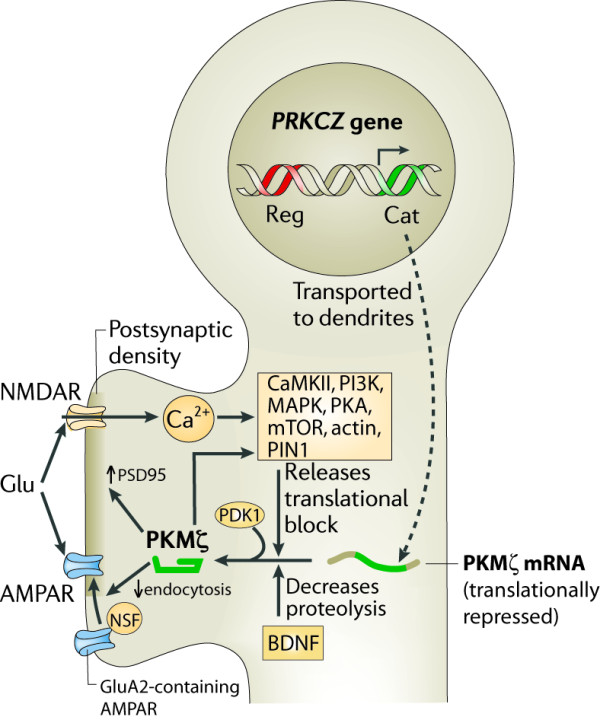Figure 1.

Summary of the signaling pathways of PKMζ-mediated late-LTP. Transcription from an internal promoter within the PRKCZ gene expresses a PKMζ mRNA that encodes a PKCζ catalytic domain (green) without a regulatory domain (red). The PKMζ mRNA, which is transported to dendrites of neurons, is translationally repressed. During strong afferent synaptic stimulation, glutamate (Glu) stimulates both postsynaptic AMPAR and NMDARs. The increase in postsynaptic Ca2+ through the activated NMDAR stimulates multiple effector molecules that upregulate PKMζ synthesis and downregulate PKMζ degradation. The newly translated PKMζ is rapidly phosphorylated by PDK1 to achieve a fully active state. PKMζ enhances its own translation by phosphorylating PIN1. The persistent activity of PKMζ then maintains both increases in postsynaptic GluA2-containing AMPARs by decreasing receptor endocytosis through an NSF-dependent pathway, and increases in PSD-95 aggregation. Adapted from [59].
